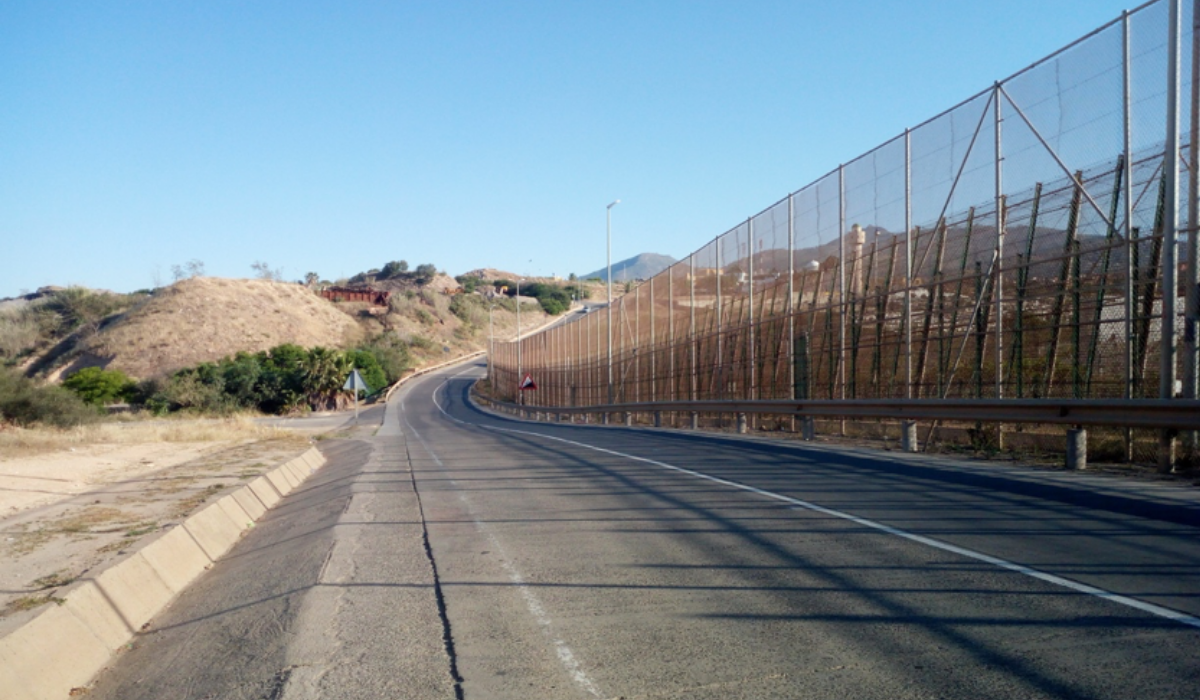Lucy Research Fellow Dr Lorena Gazzotti publishes with Cambridge University Press
Photo: The fence dividing the Spanish enclave of Melilla from Morocco.
Dr Lorena Gazzotti is an Alice Tong Sze Research Fellow at Lucy Cavendish College and CRASSH. Her book titled 'Immigration Nation: Aid, Control, and Border Politics in Morocco' will be published by Cambridge University Press in October 2021.
Over the past forty years, countries in the Global North have increasingly restricted their migration policies to reduce the arrival of migrants. As part of this, development aid has become a central tool in the migration control strategy pursued by European countries and the US, with donors, International Organisations and NGOs becoming prominent actors. In this book, Lorena Gazzotti shows that migration control is not only exercised through fences and deportation. Building on extensive research in Morocco, Gazzotti shows that aid marks the rise of a substantially different mode of migration containment, one where power works beyond fast violence, and its disciplinary potential is augmented precisely by its elusiveness. Where existing studies on border externalisation have essentialised donors, International Organisations and NGOs, with countries of 'origin' and 'transit' as compliant subcontractors, and border control as a neat form of intervention, this nuanced study unsettles such assumptions, to show that bordering happens in everyday, mundane fashions, far away from the spectacle of border violence.
Lorena’s book is available here.
Lorena says: “Politicians in the North regularly resort to the idea of using development and humanitarian aid as a way to prevent the arrival of migrant people from the Global South. We have seen it with the so-called 'migration crisis' in 2015 and the creation of the EU Trust Fund for Africa, and we will probably see it again with the current situation in Afghanistan. My book tries to dismantle the rhetoric behind the use of development funding in migration control by looking at what actually happens when aid is actually disbursed on the ground”.
Read Lorena’s Fellow’s profile here.




